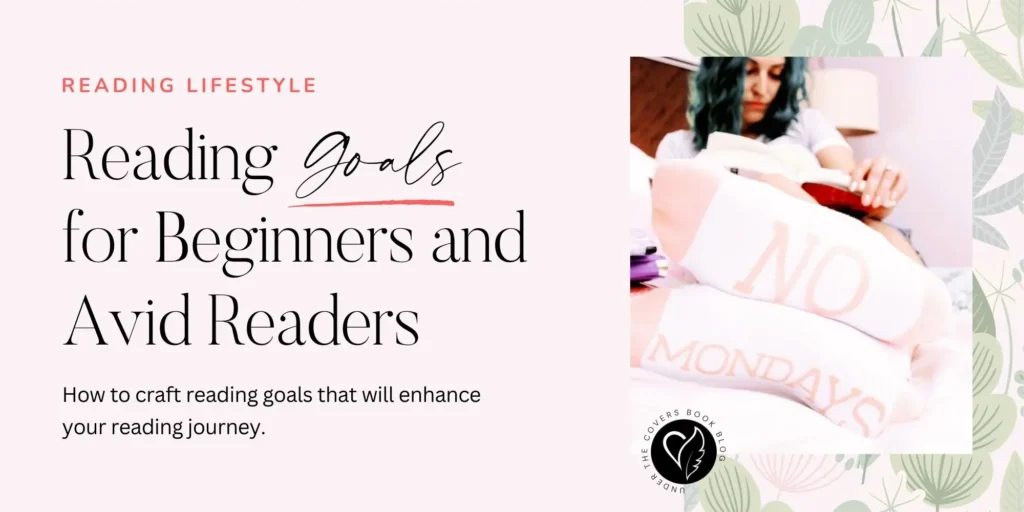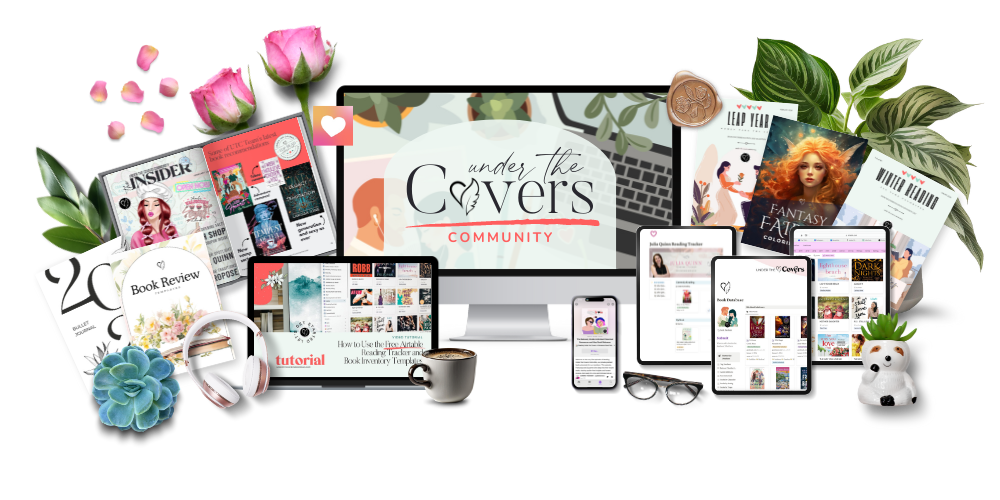
This post contains affiliate links. That means we receive a small commission at no cost to you from any purchases you make through these links.
Setting Reading Goals: Pros, Cons, and Tips for Every Reader
Reading goals can inspire and motivate, but they’re not one-size-fits-all. Whether you’re new to reading or already flying through books each month, understanding the pros and cons of setting reading goals can help you decide what works for you. Let’s dive into why you should (or maybe shouldn’t) set reading goals, followed by practical tips for beginners and avid readers.
The Pros and Cons of Setting Reading Goals
Pros of setting reading goals
- Boosts Motivation: Goals give you a reason to pick up your book instead of scrolling on your phone.
- Helps Track Progress: It’s rewarding to see how much you’ve read over time.
- Encourages Exploration: Goals can nudge you to try new genres, authors, or formats (hello, audiobooks!).
- Builds Consistency: Even small goals, like reading 15 minutes daily, help build a sustainable habit.
Cons of setting reading goals
- Can Feel Like Homework: Goals may add pressure, especially if you’re falling behind.
- Might Prioritize Quantity Over Quality: Chasing numbers could mean rushing through books without fully enjoying them.
- Risk of Burnout: Overly ambitious goals can turn reading into a chore.
- Limits Mood Reading: If you’re locked into a strict plan, it might kill the joy of reading whatever sparks your interest.
Tips for Setting Reading Goals That Work for You
Reading goals should enhance your experience, not stress you out. Here’s how to approach them, whether you’re just starting out or a seasoned reader looking to level up.
Reading Goals For Beginners
- Keep It Simple: Start small, like reading 1 book a month, 15 minutes a day or 10 pages a day. Pro tip: If you read on Kindle, the Kindle streak will keep you on track if you’ve read 15 minutes a day. That’s all you need to maintain that streak.
- Focus on Enjoyment: Choose books that genuinely excite you rather than what you think you “should” read. Pro tip: Keep a yearly TBR of the books you see recommended that spark joyful interest!
- Experiment with Formats: Try eBooks, audiobooks, or graphic novels to see what fits your lifestyle. You will find what works best for you in the end, but don’t limit yourself because of what you think you should be reading.
- Join a Reading Challenge or Find a Community: The best way to keep reading fun is to gamify your reading a bit. Consider joining our Romanceopoly reading challenge or find a group of reader friends, a book club or an online book community that helps you stay motivated with reading.
- Track Progress Lightly: Use an app like Goodreads or Storygraph, a digital tracker (shameless plug here but I have a basic starter Notion reading tracker you’ll probably love) or a journal to keep tabs without pressure.
- Celebrate Milestones: Treat yourself when you finish your first book or hit a small goal!
Reading Goals For Avid Readers
- Challenge Your Comfort Zone: Set a goal to read from underrepresented authors or explore genres you’ve avoided.
- Get Creative: Try unique goals like reading one book per decade or tackling an entire author’s backlist. Or maybe finally tackling a long running series that you’ve been meaning to read for a long time. I always suggest it’s easier to tackle these projects by doing one book per month so you can still leave room for mood reading.
- Learn to DNF: There’s no time for bad books! And sometimes bad doesn’t mean the book is bad, just not the right time for you. Put it down. You want to avoid going into that slump that’s going to come if you push yourself to read it. If you come back to it, great. And if not, that’s good too.
- Balance Your Goals: Include a mix of quick reads and more challenging books to avoid burnout.
- Incorporate Re-Reads: Revisit old favorites as part of your yearly goals—it’s like reconnecting with an old friend.
- Track and Reflect: Use tools like Notion or StoryGraph to visualize trends in your reading and reflect on your journey. If you’re ready to level up your tracking, I’ve designed a Notion reading tracker template that tracks everything. Not just the books you read, but your book inventory, authors, series, genres, recommendations, TBR and more. If you’re interested to see what it’s all about check out the ultimate Notion bibliophile template here.
Should You Set Reading Goals?
The decision depends on your personality and reading habits. If you thrive on structure and love crossing items off a list, reading goals can add excitement to your hobby. But if you’re someone who prefers to go with the flow, skip the rigid goals and focus on reading for pure joy.
Bonus Resource: Reading Resolutions for Long-Term Habits
If you’re looking for more ways to create a sustainable reading habit, check out this post: 13 Reading Resolutions to Help You Build a Joyful Reading Habit.
What Are Your Reading Goals?
Whether you’re aiming to read more, discover new genres, or just make time for yourself, the key is to enjoy the process. What are your reading goals this year? Share them in the comments below—I’d love to hear your plans!
Read more:
Pin it for later


Join the Under the Covers Community
- Book Release Calendar
- Book Tropes Book Database
- Reading Under the Covers: Extra Bite – Exclusive Bonus Podcast Feed
- Additional recommendation lists
- Reading wrap-ups and our Bookish Brunch weekly behind the scenes newsletter
- Free downloads (activities, templates and more)
- And much more!
